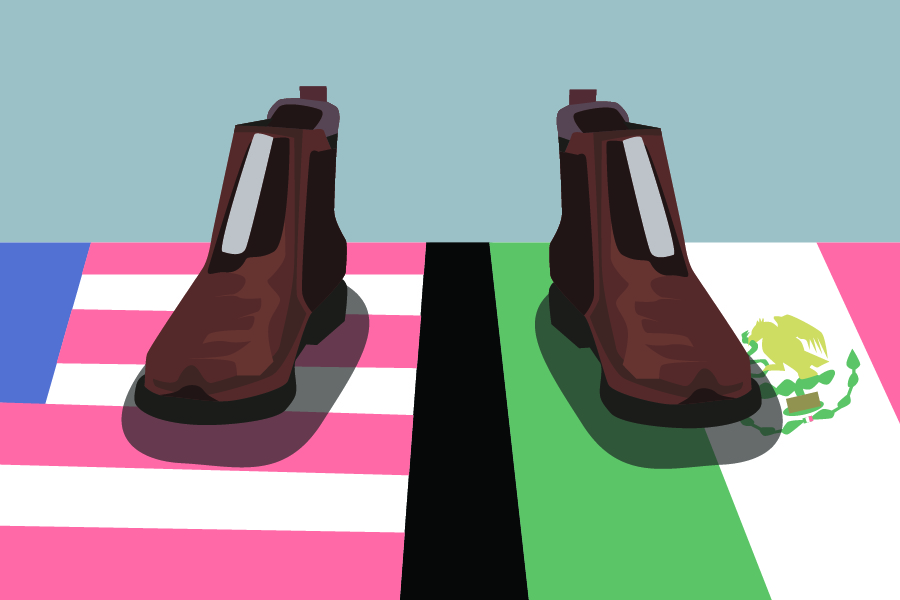
How racial identity is based on cultural upbringing, not physical appearance
 What does it mean to be Latino? Are there certain requirements that need to be met for someone to be considered a “real” Latino? Does one need to speak Spanish fluently or be native born to be considered Hispanic? Are children with Hispanic origins born in the U.S. considered Latino or American? The issue of racial authenticity is confusing, especially when so many different people have different ways of defining cultural groups.
What does it mean to be Latino? Are there certain requirements that need to be met for someone to be considered a “real” Latino? Does one need to speak Spanish fluently or be native born to be considered Hispanic? Are children with Hispanic origins born in the U.S. considered Latino or American? The issue of racial authenticity is confusing, especially when so many different people have different ways of defining cultural groups.
Let me start by saying that race is not based on physical characteristics. Race is based on your family’s upbringing and origins. How people identify culturally or racially is their own choice, and people should be more sensitive when it comes to affixing labels on others.
I am Mexican. Both my parents were born in Mexico; I was born in the U.S. Culturally I identify as Mexican. Racially, I’m Mexican-American, if you want to be technical about it.
I take no offense to being called Latino or Hispanic because I know they’re mainly Census words — umbrella terms used to calculate the Latin American population in the U.S.
What I do take offense to is when people call Latinos “Chicano.” The Chicano Civil Rights Movement in the 1960s focused on Mexican-American rights because Mexicans comprised the overwhelming majority of the immigrant population at the time. The term “Chicano” was used to try to re-signify what it means to be Mexican. It’s a term of empowerment, not a racial identity.
In the United States, identifying people’s race is almost commonplace. As a Mexican-American, I have been questioned about my racial background a lot. It might have to do with the fact that I don’t look like a stereotypical person of Mexican ancestry. Once I say that I am Mexican, people look at me and say, “Are you sure?” I’ve been told by friends and strangers that I look mestizo, or Spanish. People can’t fathom the idea of someone not adhering to their cultural stereotypes because their views of race are too rigid and appearance-based.
Whenever the topic of race comes up people hurry to ask about your origins. Although “Where are you from?” seems like a normal question, it can be framed to mean “What is your race?” It’s a common question that I’m sure a lot of people have been asked. For instance, when I get asked that question, I respond with “Oakland, California.” In some cases, I’ve even been told “Sorry, no, where is your family from?”
Growing up, I always felt like I had to traverse different worlds. As a Mexican-American, I grew up speaking Spanish at home while being socialized in Western culture outside of my home. Life at home included Spanish music, Spanish television and Mexican food. Meanwhile, school would be different: English everything.
I felt out of place. At school, I was this Mexican kid who looked kind of white, yet wasn’t really Mexican. I was in a weird limbo. Back at home, my parents would tease me about not being able to roll my double Rs because, they said, only real Mexicans could roll their double Rs naturally and smoothly. I felt like I never fit the definition for Mexican.
I thought it was curious how my white friends would call me Mexican, while my Mexican friends would call me white. I hated it. I hated not feeling like I belonged.
I felt that way growing up. However, after taking classes here at Davis, I have come to realize that race is merely a social construct. It’s not a real thing. Genetically, there’s no difference between my DNA and the DNA of someone from China, the only difference being physical characteristics. People need to make the distinction that physical characteristics are not clues to someone’s racial identity.
My racial identity is something that I’m proud of. Whenever someone asks for my name at a restaurant I make sure to pronounce it in my best Spanish accent. I used to be embarrassed to answer my parents’ phone calls because I was always cautious of speaking Spanish in public. Now, I’m all for it. I love to let people know that I’m Mexican. I will not let other people affix their labels to me. I’m honored to be Mexican and proudly assert it.
Written by: Alejandro Lara — amlara@ucdavis.edu
Disclaimer: The views and opinions expressed by individual columnists belong to the columnists alone and do not necessarily indicate the views and opinions held by The California Aggie.




